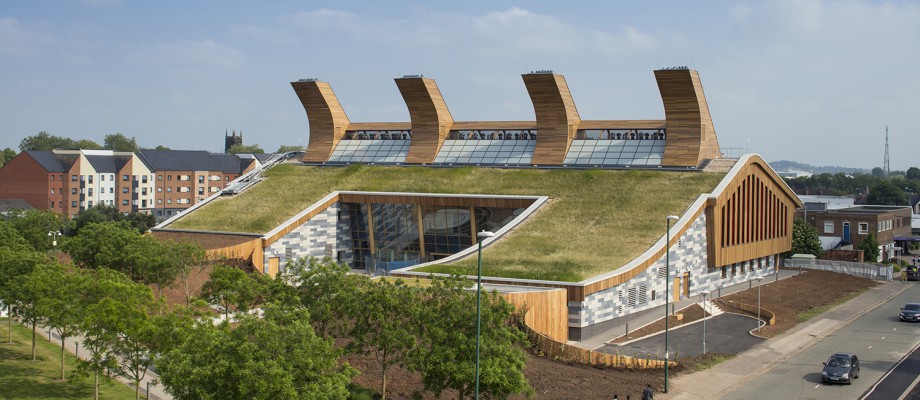Decarbonising the economy
How can benefits be maximised with risks mitigated equitably?
Published 22 Apr 2024
 GSK Carbon Neutral Laboratory at Jubilee Campus
GSK Carbon Neutral Laboratory at Jubilee Campus
In March 2024, we launched a policy commission with former Deputy Leader of the Labour Party and Honorary Professor Lord Watson, to investigate a just transition to net zero. In this blog post, we explained some of the insights and discussions from the first witness session where representatives from industry, trade unions, and academia convened to explore how we can achieve a low-carbon economy. The session provided valuable perspectives on decarbonisation, green jobs, and the importance of inter-generational equity in climate policy.
Kickstarting the just transition conversation
Last week, we saw the first in a series of witness sessions for the Institute’s policy commission, with representatives from across industry, the trade unions, and academia joining the discussion on how to deliver a just transition to a low carbon economy. Chaired by honorary University of Nottingham Professor Lord Watson of Wyre Forest, and co-chaired by Professor Lucelia Rodrigues, the first evidence session saw insightful discussion and evidence on how the transition can bring positive outcomes across regions, the workforce, and the sector.
The meeting saw witnesses from the University of Nottingham, the Institute of Directors, Energy Systems Catapult, trade unions Prospect and GMB, Bankers for Net Zero and the University of Leeds meticulously discuss various topics analysing how the economy can be decarbonised in a way that maximises the benefits and mitigates risks.

Key topics and insights
Topics discussed included the creation of green jobs, reskilling and upskilling, as well as how to provide opportunities to as wide a demographic as possible. Within this, the importance of equality, diversity, and inclusion was highlighted, especially in the context of promoting more equal gender representation within green jobs.
Witnesses highlighted the importance of attracting investment in decarbonising projects and the urgent need for incentives and long-term schemes to help boost the sustainability of businesses. The need for planning reform to support green infrastructure was also discussed, as well as a wider discussion on the need for policy stability for both businesses and investors.
A prominent topic throughout was what tools are needed to allow for community engagement, recognising the unequal impacts of climate change. Crucially, the notion of inter-generational equity was raised, with the concerns and interests of young people being a key aspect within climate policy.
Future sessions
The Institute would like to thank Commissioners from the Aldersgate Group, Trades Union Congress, European Climate Foundation, University of Nottingham, Business in the Community, Social Enterprise UK, Midlands Net Zero Hub, East Midlands Chamber of Commerce, and HyDEX.
We look forward to the next session which will further explore the notion of a just transition, with a particular focus on the role and position of communities within this.
Get in touch
If you would like to find out more about the policy commission or the other work that the Institute does to support transitioning to a net zero future, please email us.